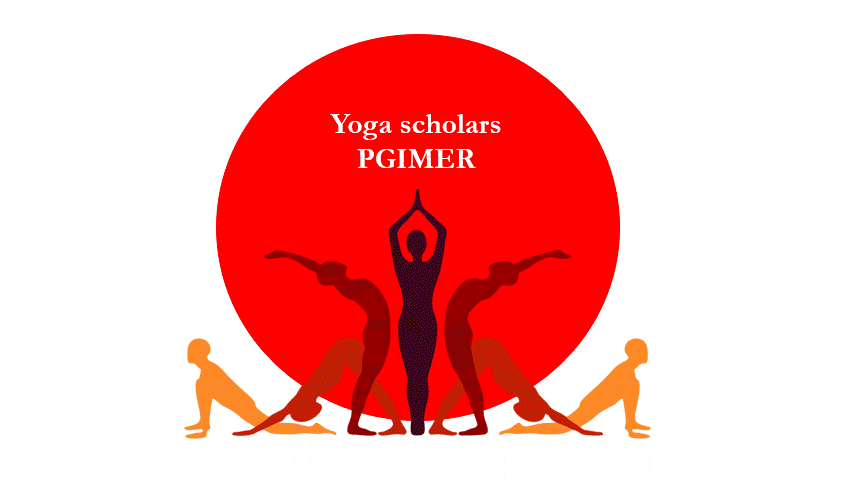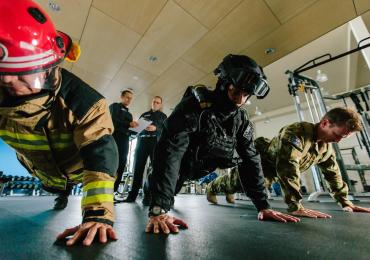
Telehealth can deliver robust outcomes for children with special education needs
New research finds telehealth can be very effective in the delivery of support for students with special education needs, particularly when barriers to services exist, as during the current global COVID-19 pandemic. “While services delivered by telehealth should not be considered a replacement for in-person occupational therapy (OT) services, telehealth’s positive attributes are powerful,” say authors Cynthia Abbott-Gaffney, OTD, MA, OTR/L, Department of Health and Rehabilitation Sciences, Occupational Therapy Program, Temple University, Philadelphia, PA, USA, and Karen Jacobs, EdD, OT, OTR, CPE, College of Health & Rehabilitation Sciences: Sargent College, Occupational Therapy Program, Boston University, Boston, MA, USA. “Our research highlights the need for robust training, practice and support to ensure that practitioners have the opportunity to develop best practices and identify options for overcoming digital, financial and collaboration support barriers for those we serve.”
“Telehealth in school-based practice: Perceived viability to bridge global OT practitioner shortages prior to COVID-19 global health emergency,” by Cynthia Abbott-Gaffney and Karen Jacobs (https://doi.org/10.3233/WOR-203240). Author contact: Cynthia Abbott-Gaffney at cynthia.abbott-gaffney@temple.edu

Caption: Occupational therapy telehealth visual-motor skill facilitation in action with Cynthia Abbott-Gaffney.
Let’s get back to work: Proactive biological cycle management to reduce the risk of COVID-19 in workplaces
Established expertise and knowledge from occupational health and safety experts, following the three principles of biological cycle management, can open an exit ramp from lockdown and support employees’ return to work. These principles are self-care (individuals take care of their own health by wearing a mask and handwashing, for example); other-care (individuals protect the health of others); and self-quarantine (individuals stay at home when they have symptoms of COVID-19 or have been exposed to someone who has). Education at work can support compliance with these principles. “Closing a workplace means unemployment and increasing social and family harm. These are physical and mental risks in their own right. Work is supported even in a pandemic by following the principles of biological safety management,” observes senior author Vahid Gharibi, PhD Student, Department of Occupational Health, School of Health, Shiraz University of Medical Sciences, Shiraz, Iran; and Department of Occupational Health, School of Public Health, Shahroud University of Medical Sciences, Shahroud, Iran.
“Let’s get back to work: Preventive biological cycle management of COVID-19 in the workplace,” by Mehdi Jahangiri, Rosanna Cousins, and Vahid Gharibi (https://doi.org/10.3233/WOR-203217). Author contact: Vahid Gharibi at gharibivahid@gmail.com or +98 912 738 8145 (mobile or WhatsApp)
Yoga practice encouraged to meet the mental, emotional and physical challenges of working from home during COVID-19
Researchers review the evidence of yoga’s beneficial impact on stress reduction, the immune system and in certain co-morbidities associated with severe or lethal COVID-19. “Yoga practice can reduce the risks of comorbid conditions and strengthen the immune system by relieving stress and anxiety, directly improving impact markers, or both. Yoga practices can be employed at home and workplaces alike,” explain senior authors Akshay Anand, PhD, and Kanupriya Sharma, PhD candidate, Neuroscience Research Lab, Department of Neurology, PGIMER, Chandigarh, India. Yoga-based modules such as Yoga Scholars PGIMER on Facebook, the Common Yoga Protocol developed for the International Day of Yoga and the 5 min Y break AYUSH Protocol can be easily accessed by those working from home.

“The role of Yoga in working from home during the COVID-19 global lockdown,” by Kanupriya Sharma, Akshay Anand, and Raj Kumar (https://doi.org/10.3233/WOR-203219). Author contact: Akshay Anand at +91981596810 or akshay1anand@rediffmail.com
Underemployment is overlooked as a significant consequence of the COVID-19 epidemic
While unemployment is a very visible sign of an unhealthy economy, underemployment is a latent and passive manifestation of the same. A large number of workers will become underemployed during the COVID-19 epidemic, working increased hours, for less money, in jobs that underutilize skills and are not appropriate or productive. Researchers review the consequences of underemployment in this time and call for organizations and policy makers to develop programs and policies to mitigate the impacts. Senior investigator Manjeet Kaur, PhD, Punjab Agricultural University, Ludhiana, Punjab, India, notes, “A study of employment can never be complete without dealing with the socio-economic and psychological issues related to underemployment, because they harm the individual, organization and economy on the whole.”
“Individual, interpersonal and economic challenges of underemployment in the wake of COVID-19,” by Manjeet Kaur, Pratibha Goyal, and Mini Goyal (https://doi.org/10.3233/WOR-203249). Author contact: Majeet Kaur at kaurmanjeet2694@gmail.com
Researchers see an opportunity to create a “new normal” for people with disabilities post-Covid-19 pandemic
Peer-reviewed research related to the effect of COVID-19 on individuals with disabilities, analyzed through a “systems-thinking” approach, suggests five key leverage points for the advancement of the disability and rehabilitation fields post-pandemic. They are the development of disability-inclusive public health responses and emergency preparedness; enabling employment and telework opportunities for people with disabilities; and addressing new requirements in rehabilitation service provision, including in the care of people with infectious diseases such as COVID-19; embracing telehealth; and developing greater resilience, distance learning, and employability among the rehabilitation workforce. “If successful, we can move towards a transformed society with improved capacity and capabilities for increasing the health, employment, equity, and quality of life for people with disabilities. To achieve anything less would be a lost opportunity to ‘build back better,” suggests Tiago S. Jesus, PhD, OT, Global Health and Tropical Medicine and WHO Collaborating Center on Health Workforce Policy and Planning, Institute of Hygiene and Tropical Medicine, NOVA University of Lisbon, Lisbon, Portugal.
“A ‘new normal’ following COVID-19 and the economic crisis: Using systems thinking to identify challenges and opportunities in disability, telework, and rehabilitation,” by Tiago S. Jesus, Michel D. Landry, and Karen Jacobs (http://doi.org/10.3233/WOR-203250). Author contact: Tiago S. Jesus at jesus-ts@outlook.com
# # #
NOTES FOR EDITORS
These articles are openly available and appear in WORK, published by IOS Press. Full text of these articles is also available to credentialed journalists upon request; contact Diana Murray +1 718-640-5678 or d.murray@iospress.com. Visit the WORK COVID-19 article collection: http://workjournal.org/covid-19
ABOUT WORK: A JOURNAL OF PREVENTION, ASSESSMENT & REHABILITATION
WORK: A Journal of Prevention, Assessment & Rehabilitation is an interdisciplinary, international journal that publishes high quality peer-reviewed articles covering the entire scope of the occupation of work. The journal's subtitle has been deliberately laid out: The first goal is the prevention of illness, injury, and disability. When this goal is not achievable, the attention focuses on assessment to design client-centered intervention, rehabilitation, treatment, or controls that use scientific evidence to support best practice. http://workjournal.org
ABOUT IOS PRESS
IOS Press is headquartered in Amsterdam with satellite offices in the USA, Germany, India and China and serves the information needs of scientific and medical communities worldwide. IOS Press now publishes more than 90 international peer-reviewed journals and about 65 book titles each year on subjects ranging from computer science, artificial intelligence, and engineering to medicine, neuroscience, and cancer research. www.iospress.com



